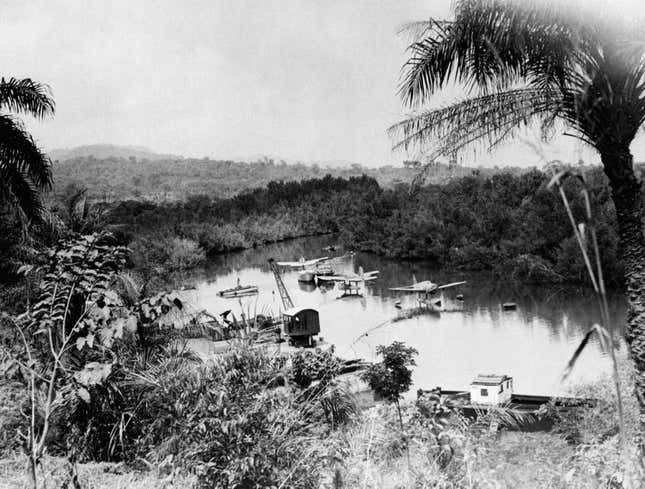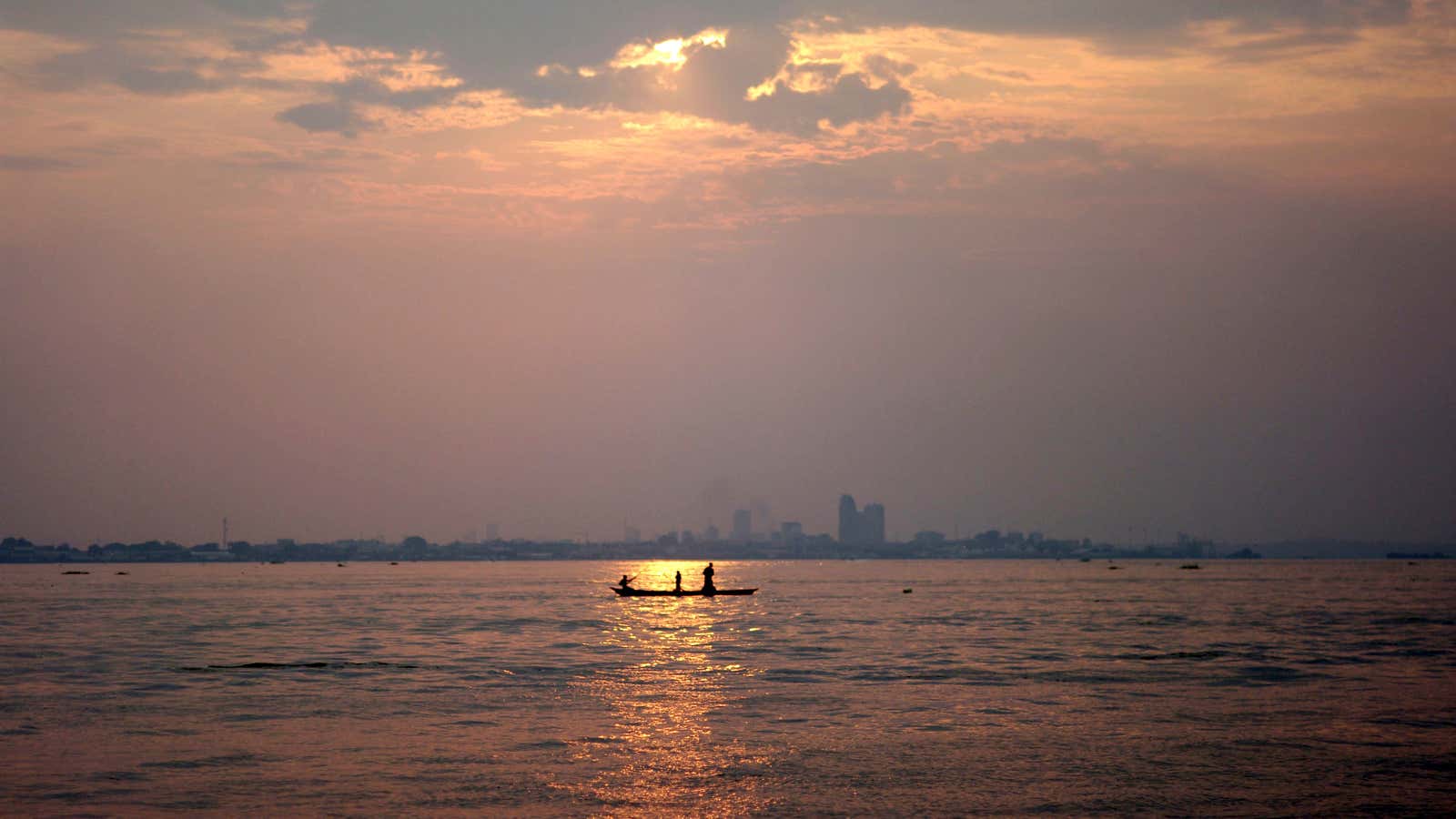Joseph Conrad sailed up the Congo River more than 100 years ago and yet the novella based on his experience remains the African guidebook for many contemporary writers.
Heart of Darkness, first published in 1899 as a three-part magazine serial, tells the story of a steamboat captain navigating a primitive Africa and the brutalities of Belgian colonialism. Conrad would not recognize the vast and complex country that is the Democratic Republic of the Congo today. The nearly 3,000-mile-long Congo River remains an economic and cultural feature of the country, and its banks are teeming with villages, towns, and the modern metropolis that is the capital Kinshasa.
Yet contemporary writers continue to use Heart of Darkness as a metaphor and guide to their own views of Africa. Most recently, Maya Jasanoff, a Harvard University history professor, retraced Conrad’s journey up the Congo River in a New York Times op-ed. Her essay reflects the research for her upcoming book, The Dawn Watch: Joseph Conrad in a Global World. In her article, Jasanoff compares her trip to that of Conrad and, in the process, falls right into the same racist tropes of Africa that he can be forgiven for, but not Jasanoff today.

“The smoked monkeys brought the point home,” Jasanoff writes, describing herself, the only white woman onboard, as “the real exotica” on the boat she was travelling on. “When I saw the monkeys impaled on stakes, skulls picked clean of brains and teeth thrusting out, I looked otherness in the face — and saw myself mirrored back.”
The essay provoked a collective outrage on social media, part of a decades-long rebuttal, especially by Africans, of the continued use of Conrad to set the parameters of Africa’s progress—or lack of it. For Africans, Heart of Darkness is a difficult read. The Africans portrayed in the book are primitive, defeated, and grotesque. They are manipulated by the book’s shadowy character, Mr. Kurtz, and are capable of committing terrible atrocities. They are also silent, never able to respond to their colonial masters.
Among the most cogent responses to Conrad is Chinua Achebe’s Things Fall Apart and the rest of his African Trilogy. Many more books have been written by African authors, from a myriad of African experiences.

Jasanoff at least talks to the locals she shares the boat with. But that’s part of what makes her insistence on introducing her essay with a description of bush meat so perplexing—this is a well-worn literary stereotype, along with witchcraft, that’s meant to expose how primitive Africans are. Yet she has shown she is capable of a far more nuanced uderstanding of the past and present. She was awarded the Windham-Campbell non-fiction prize this year for her “vivid, superbly researched” historical writing.
African stereotypes continue to dog the continent perhaps because they still reward the European and American journalists who trot them out. Just recently, the New York Times’ East Africa bureau chief Jeffrey Gettleman wrote a memoir that showed how “ooga booga” journalism made its way into his own Pulitzer-winning reporting.
Fortunately, as the outrage over Jasanoff’s piece shows, the subjects of these Africa memoirs are no longer as silent as they were in Conrad’s day. They respond through their own books and reporting, as well as through increasingly powerful social media. Foreigners trying to sell their still colonial-minded views of Africa are being forced to apply much more nuance than they were a century ago.
